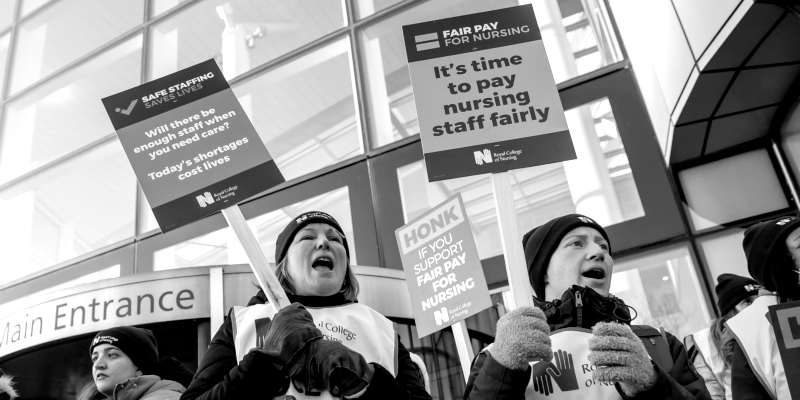
The RCN says the bill is not fit for purpose. This week we’ve used a debate on the bill in the House of Lords, where the RCN’s work was referenced numerous times, as an opportunity to highlight our opposition and influence proposed changes to the bill.
When draft legislation, known as bills, passes through Parliament, there’s a chance to change wording using amendments. The RCN is working with other unions to make it clear that changes need to be made to this bill.
The Strikes (Minimum Service Levels) Bill was introduced in early 2023 and if passed, will ensure there are regulations imposed that could make some strike less effective by requiring a base level of service.
This week, we backed an amendment in conjunction with the British Medical Association (BMA) about minimum service levels and safety.
The amendment proposed that minimum service levels for health services can’t be made unless the UK government has first established appropriate and legally enforceable staffing levels across health services for non-strike days that are greater than those required on strike days.
As part of our safe staffing campaign, RCN members have called for accountability for staffing for safe and effective care in health and social care settings, to be set into law in England. This is important at all times, and not only in extreme circumstances, which is what this bill is proposing.
Earlier this week the cross-party Joint Committee on Human Rights (JCHR) in Parliament said the bill fails to meet the UK’s human rights obligations after the RCN submitted evidence, highlighting the clear equalities impacts in the bill, to a House of Commons report. The committee has called for the legislation to be reconsidered and has warned that article 11 of the European Convention on Human Rights (ECHR), which guarantees freedom of association for workers, could be compromised.
The committee also agreed with the RCN’s argument that the bill is likely to disproportionately effect those from marginalised groups. They said: "We agree that there is potential for minimum service requirements to impact more severely on certain protected groups, most obviously women in respect of nursing."
We’re also supporting an amendment that would see the removal of a provision which would allow workers to be sacked for taking part in otherwise lawful strike action. The bill in its current form dictates that some employers could require employees to work during a strike and those employees could be dismissed if they refuse.
This poses a fundamental risk to our members' rights and would exacerbate severe nursing workforce shortages. The amendment was tabled in the House of Lords by former nurse, Sarah Mullally, the Lord Bishop of London, following discussions with the RCN. This amendment will be discussed the next time the bill is debated in the House of Lords.
RCN Director for England Patricia Marquis said: “The government’s failure to do any equality impact assessment on this bill is shameful. Trade union members in the UK are both disproportionately women and Black British and this bill risks discriminating against them. We are glad that the JCHR agrees with our assessment that there is potential for minimum service requirements to impact more severely on certain protected groups.
“Fixing the workforce crisis should be the government’s priority – not attacking workers’ rights. The government should go back to the drawing board and scrap this legislation.”






